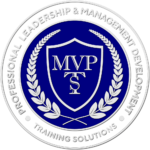In Joseph Nguyen’s assertion, “We should stop thinking because thinking is manual, strenuous, heavy, and fills us with anxiety,” lies a provocative challenge to the traditional notion of incessant mental labor in leadership. As a leader, you are often inundated with the weight of decision-making and strategic planning, constantly navigating complex scenarios and anticipating outcomes. However, Nguyen suggests that this relentless cognitive effort may not always yield optimal results. Instead, he proposes a shift away from overthinking towards a more intuitive, instinctive approach to leadership.
From a leadership perspective, the call to cease incessant thinking may seem counterintuitive at first. After all, critical thinking and analysis are often heralded as indispensable skills for effective leadership. However, Nguyen’s assertion prompts reflection on the toll that constant mental exertion can take. The manual, strenuous nature of overthinking can lead to decision fatigue, inhibiting your ability to make clear, rational choices. Moreover, the weight of constant mental activity can contribute to feelings of overwhelm and anxiety, impeding both your general well-being and leadership efficacy.
Nguyen’s statement underscores the importance of balance in leadership. While thoughtful deliberation is essential, there is also value in allowing space for intuition and instinct to guide decision-making. Embracing moments of mental rest and relaxation can foster creativity, innovation, and clarity of thought. Relinquishing the pressure to think and analyze constantly, you create room for serendipitous insights and breakthroughs that may elude you in a state of perpetual mental strain.
Moreover, the idea that thinking is manual and strenuous suggests a reevaluation of the relationship between effort and effectiveness in leadership. Rather than equating productivity with the sheer volume of mental activity, perhaps true effectiveness lies in the quality of thought and the discernment to know when to pause, reflect, and recharge. Prioritizing mental ease and flow, you cultivate a leadership approach that emphasizes resilience, flexibility, and overall wellness. In essence, Joseph Nguyen’s assertion challenges leaders to reconsider their relationship with thinking and embrace a more balanced approach to decision-making. Acknowledging the limitations of constant mental effort and cultivating a mindset of mindfulness and intuition, you can enhance your leadership effectiveness while fostering a healthier, more sustainable relationship with your own mind.
MVPTS STAFF
